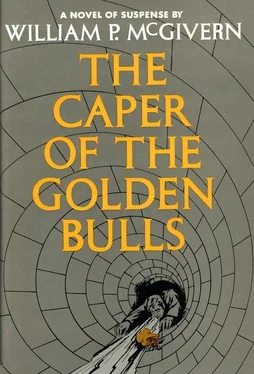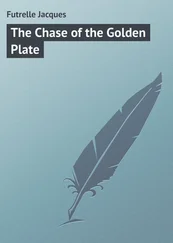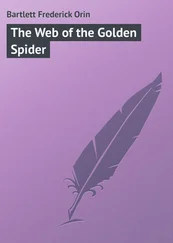“Well, those things happen,” Peter said. “Now then. I can do two things which will put an end to this nonsense. I can call the police and have you both locked up for breaking into my room; then I can call Morel and tell him you’re on my trail. The next you know, he’d be in Brazil or Iceland or Timbuktu. But I’m not going to do either of those things, because I have a use for this big chap here. You can have your crack at Morel when my work is done. But not until. And not unless Phillip agrees to take orders from me as unhesitatingly as he would from you.”
The colonel looked thoughtful. “May I have your word that you won’t reveal Phillip’s identity to Morel?”
“Yes, but only on the condition that you do nothing to Morel until I’m finished with him.”
“You have my word.”
“In that case, you have mine. Here. Put this away.” He gave the colonel his gun and turned to study Phillip with an appraising frown.
“Stand up straight, Sergeant. Tell me. Are you as strong as you look?”
Phillip shrugged impassively. “I’m as strong as I need to be.”
“Good. The job I have in mind is very demanding. Morel’s not up to it, I’m sure. And I’ll be busy with other things.” Peter pulled a table from the wall and placed it between two straight-backed chairs.
“Sit down, Phillip. Facing me. Are you familiar with arm-wrestling?”
The question brought a fleeting smile to Phillip’s lips.
“Good,” Peter said. “Let’s see if you’re up to what I have in mind.”
They braced their elbows on the table and locked hands together deliberately and cautiously, adjusting and altering their grips for maximum power and leverage. “Colonel, will you give us the word?”
“Very well. Are you both ready?”
“Yes.”
“Yes, Colonel.”
“In that case commence!”
The table creaked with the sudden pressure of their arms. The colonel smiled faintly. “Sergeant, put Mr. Churchman’s hand down on the table.”
“Yes, Colonel.”
It was over in a matter of seconds.
Phillip rubbed his shoulder and looked sheepishly at the colonel. “I’m sorry, sir,” he said with a sigh.
“Well, it’s more a trick than anything else,” Peter said, and gave Phillip a consoling pat on the back. “Don’t worry about it. You’ll do fine.”
As Peter started to rise, Phillip sprang to his feet, stepped around the table and held his chair. There was something in his expression which brought a faint and rather wistful smile to the colonel’s face.
“I hope I deserve your confidence, sir,” Phillip said to Peter. “I hope so too. For your sake and mine. Now let’s discuss our problems realistically. It’s all very well to say you want Morel’s share of the loot. But getting it will be another matter. Angela is no fool. I’m assuming Morel isn’t either.”
“No. He has an instinct for survival,” the colonel said. “Therefore we need a sound cover story for Phillip. I am planning to steal certain precious stones from the Banco de Bilbao next week. But Phillip, you can’t let on you know that. We mustn’t get into the business of shares. Angela will question you, shrewdly and carefully, but you must convince her you think we’re only after money. You don’t know the details of the job. All you can reveal to either of them is this: that I offered you a sum of money, two thousand American dollars, to do something requiring great physical strength. It’s dishonest, but you don’t give a damn. Got it?”
Phillip nodded slowly. “They’ll learn nothing more from me, I assure you.”
“All right. Point two. When I hand over the jewels, I receive in return an object of no material value. Its nature isn’t relevant. But it compromises friends of mine. Now let me say one more thing: The jewels have a sacred and historical value, and disposing of them may be impossible. I’m being fair with you your general’s wife probably won’t realise a sou from them.”
The colonel smiled. “If that’s true and we will make certain it is we will return them to their owners.”
“And kill Morel with pleasure,” Phillip said. “Then we understand one another.”
“But I don’t understand you,” the colonel said. “You’re risking your life for nothing?” The colonel smiled and turned to the door. With a hand on the knob he looked back at Peter. “You know, you’re quite a remarkable person, Mr. Churchman. In another situation, I would like to be your friend. I think we might have interesting matters to talk about. But do you mind if I tell you something?”
“Please do.”
“You have a disease which frequently attacked my finest officers.”
“And what’s that?”
“You want to die, Mr. Churchman.”
The door clicked and they were gone.
The colonel’s diagnosis jarred Peter. He didn’t want to die. He wanted Grace, he wanted to live. What the devil did the old Frenchman know about it?
Troubled and unhappy, Peter went out to look for Grace.
He searched hotels and bars, cafés and restaurants, and looked for her shining blonde head in the streets and plazas of the old town. But he found no trace of her at all.
At last he gave up. He stood on the old battlements and stared down at the streets and buildings below him, and his mood was as grey as the soft gloomy dusk that was spreading over the city. Everything was quiet and peaceful now, but next week this would be the arena in which he must fight for his life.
Peter made his final preparations. He went to a crooked street where a carpenter lived and gave him money and instructions. Then he booked a hotel room with a view of the river and the bull pens. Finally he spent an hour in the reading room of the Museum of Archives, looking at blueprints of certain architecturally interesting buildings in the old quarter of the city. These precious yellowing documents, protected by sheathings of transparent plastic, gave Peter a scale view of the substructure of Pamplona. He made notes while the gently garrulous old curator explained the characteristics of the Roman sewers and canals which run under the older part of the town to drain into the River Argo. Peter drew the curator’s attention to a particular building, and let him ramble on about it. He copied down a few more figures, thanked the old gentleman sincerely, and returned to his hotel room.
There he made an entry in his journal, a quite formal and explicit one:
Dear God. The others were for You. The passion, the innocence, the money, it was all for You. You look with favour, I’m told, on engineers who build bridges in Your Name, and on football coaches who win games for Your greater glory. Well, You know what I did. And why.
But this one is strictly for me. Can I have one for myself? Okay?
There was no answer in the faint street noises drifting up to his room, no friendly encouragement or permission in the gentle stir of the curtains, the efficient drip of the faucet in the adjoining bathroom.
Well, no news is good news, Peter thought without cheer. He made himself a mild drink and began to pack.
On the morning of his return from Pamplona, Peter arranged a meeting with Angela and Francois at their hotel. He took Phillip along with him. At first Francois was as tense as a cat facing a mastiff. But after several cautious questions he relaxed and accepted Phillip with a relieved smile.
“So you weren’t in Algeria at all?”
“No. My unit was in Lyons.”
“You were lucky. In Algeria you never could tell who’d give you a knife in the back the enemy or your own comrades. Of course, you knew about the revolts there, the OAS, that sort of thing?”
“Yes, but it wasn’t my concern. I had a good job in the arms depot, and a reasonable commanding officer. Since I wasn’t a professional soldier, it meant nothing to me that the generals in Algeria were squabbling among themselves.”
Читать дальше












